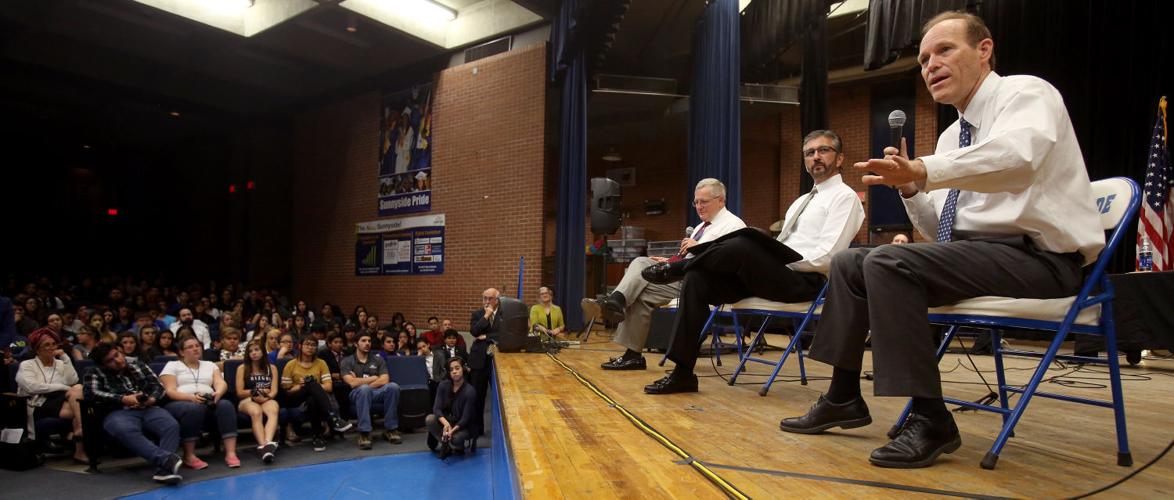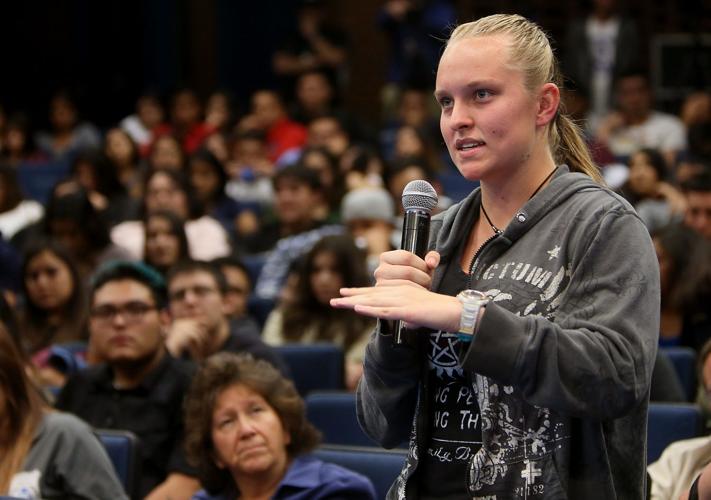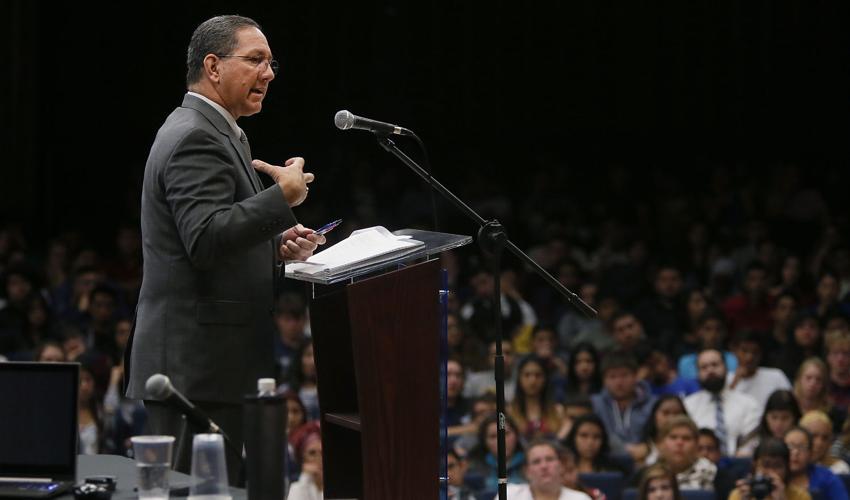Jessica Drezek, 16, asks a question to the panel of judges after oral arguments were completed. Students expressed interest in the challenges lawyers and judges face.
Deputy County Attorney Roger Contreras of the drug unit at the Cochise County Attorney’s Office faced a panel of three Arizona Court of Appeals judges as he argued his case Wednesday.
But the venue for the hearing was not a courtroom at 400 W. Congress St., where division two of the court is located. Instead, it was at the Sunnyside High School auditorium.
“This auditorium became a courtroom,” said presiding Judge Garye Vásquez.
Behind Contreras was an audience of hundreds of middle and high school students who were there to learn about the judicial process.
The court traveled to Sunnyside as part of its community outreach effort, said Geri Mose Mahrt, a staff attorney with the Arizona Court of Appeals Division Two.
“The court has a strong belief in public education,” she said.
But this was not a mock hearing intended solely for education. It was the real thing.
The case involved two defendants who were charged with multiple drug-related offenses. Their motion to suppress the drug evidence, which was found during a traffic stop, was granted by the trial court.
The defendants were pulled over by a Cochise County Sheriff’s deputy for not having a light on the vehicle’s license plate. The trial court’s decision to grant their motion is based on the finding that the deputy did not have reasonable suspicion to prolong the traffic stop and bring out a drug detection dog.
Contreras, on behalf of the state, was appealing that decision.
The court provided Sunnyside High School with materials related to the case beforehand, including a glossary of terms, so that the students would be prepared to understand what was being discussed.
The argument was followed by a Q&A with the judge. And, though it’s not typical, Contreras and Mark Suagee, who represents one of the defendants, also answered students’ questions.
Questions included how to become a judge, whether attorneys and judges sometimes face danger, and interest in examples of difficult cases.
Jade Kingman, 17, asked about the impact of Justice Antonin Scalia’s death on the U.S. Supreme Court and the upcoming presidential election.
Chief Judge Peter Eckerstrom responded by saying the judges would be reluctant to give their personal views because of the topic’s political nature. But he added that from a structural standpoint, there would eventually have to be nine Justices to break ties.
Kingman, a senior at Marana High School, said later that she asked that question because she finds the whole controversy interesting. She is considering a career in law enforcement and is interested in learning about the judicial process.
“This was really interesting,” she said. She had sat in on court hearings at the federal court in Tucson before, but never had an experience this “up close and personal.”
Norma Jean Higuera-Trask — a civics teacher at Challenger Middle School and a coach for the We the People program, which helps students become informed citizens — said the traveling oral argument was a unique experience for her students.
“It provides them a real-time experience of what they are learning,” she said.






